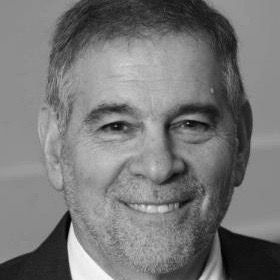The response to the attacks in early May against four houses for worship in Encino — two synagogues, a Baha’i Community Center and a Protestant Church — shows that the way Americans handle what seemed to be an explosion of hatred defeats that hatred and reinforces our sense of community solidarity and diversity. It makes the United States that very special place where freedom of religion supports the freedom for religion.
Images of synagogues set aflame are never taken lightly by Jews. Our history conjures up pogroms and desecrations.
Within living memory of Holocaust survivors, there are the blazing images of the November 1938 pogroms in Germany, more commonly known as Kristallnacht, when more than 1,000 synagogues were burned and desecrated, 7,000 Jewish businesses looted and destroyed, and approximately 30,000 Jewish men, ages 16-60, were arrested and sent to newly expanded concentration camps.
The attacks were coordinated and centralized. Police were instructed to let the crowds have their way. Firemen stood by with explicit instructions only to douse the flames if the adjacent buildings were likely to catch fire.
In the aftermath, Germany systematically decided to end the last of Jewish civil participation — by then all rights had been eroded — and to intensify the persecution. An emergency meeting was called not to protect the victims but to furnish a fig leaf for insurance companies — and for the German consumer — because the property that was destroyed was insured, and if the Jews were permitted to file claims, then the insurance companies and their patrons would end up footing the bill.
So as the insurance companies stood by ready to honor all claims, Jews were forbidden to file a claim, and thereby, the Jewish community was fined collectively 1 billion marks for the destruction.
One must pay attention to what has happened over the past two and a half years in France, where synagogues were set upon, rabbis were stabbed, school buses carrying Jewish children were attacked and the French government treated each instance in isolation. A cartoon in the French newspaper, Le Monde, which depicted six such attacks on manifestly Jewish targets, had two policemen asking each other: "When can we say the word anti-Semitism?"
A political demonstration protesting the attacks drew 120,000 Jews but no French politicians, no serious interfaith support, and the media barely covered the story of anti-Semitism or the story of the rally against anti-Semitism. The media let it pass.
There are no "hate crimes" in France. French law has no such category; French police collect no such statistics. There is no coordinated work by the police and municipal or national officials against such actions.
Contrast this with what happened in Los Angeles. Mayor James Hahn was on the scene at Valley Beth Shalom immediately. Visibly moved by the fire, he spoke out loudly and strongly against the hatred.
"We cannot tolerate this, and we will do everything in our power to stop it," the mayor said, and no one doubts that he meant it. Los Angeles Police Chief William Bratton put the mayor’s words into action. A task force was formed and 65 detectives were assigned to catch the perpetrator. In addition, the City Council offered a reward. Of equal importance, there were immediate expressions of solidarity.
Hispanic employees of Valley Beth Shalom protected the sacred Torah scrolls. With tears in their eyes, they brought them to safety.
Christians reached out to Jews, Jews and Christians reached out to Baha’i and Baha’i reached out to Christians and Jews. The solidarity was wall-to-wall, cutting across all religious faiths and all denominations within the mosaic of Los Angeles. The evening of the Valley Beth Shalom attack, an interfaith service was held at a Roman Catholic Church.
Within days the suspected perpetrator was caught.
Persecution is something that these religious groups have known elsewhere. Religious freedom has allowed them to flourish in the United States — religious freedom and tolerance.
Because we have the category of hate crimes in our statistics and understand that an attack against a synagogue, a church, a mosque, a temple is an attack against the very fabric of our society, against the things that are important to all Americans, all the resources of society are drawn together to combat such attacks. The haters draw us together rather than drive us apart. The deeds are offensive, odious, but the response to these horrific acts is a manifestation of all that is right in this city, in this state and this country.
So while Valley Beth Shalom, the First Presbyterian Church, the Baha’i Faith Community Center and the Iranian Synagogue, Da’at Torah Educational Center, were attacked, hatred was defeated; tolerance was triumphant. We should condemn the circumstances that led to such a triumph but cherish the triumph itself.
Michael Berenbaum is director of the Sigi Ziering Institute: Exploring the Ethical and Religious Implications of the Holocaust, and adjunct professor of theology at the University of Judaism.























 More news and opinions than at a Shabbat dinner, right in your inbox.
More news and opinions than at a Shabbat dinner, right in your inbox.